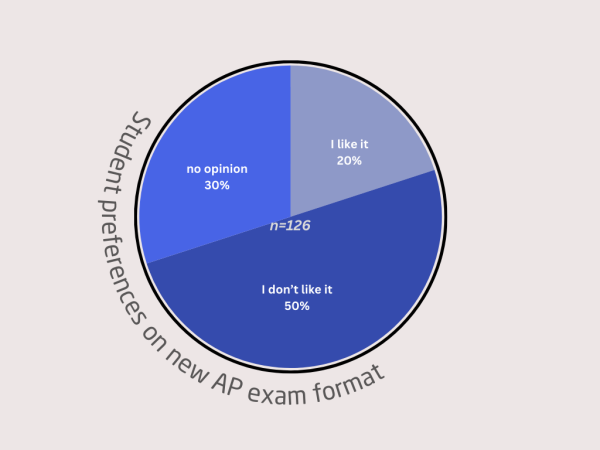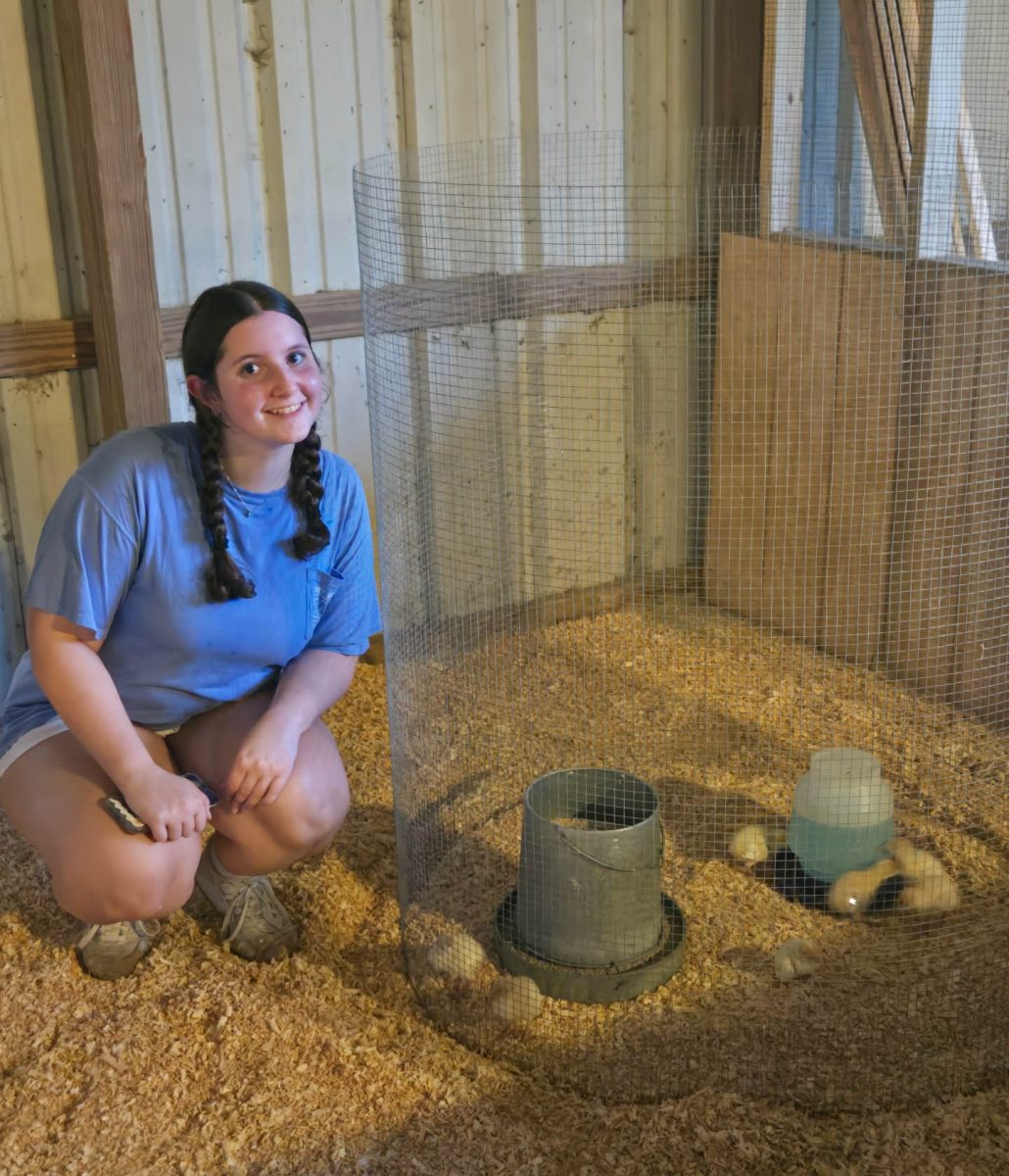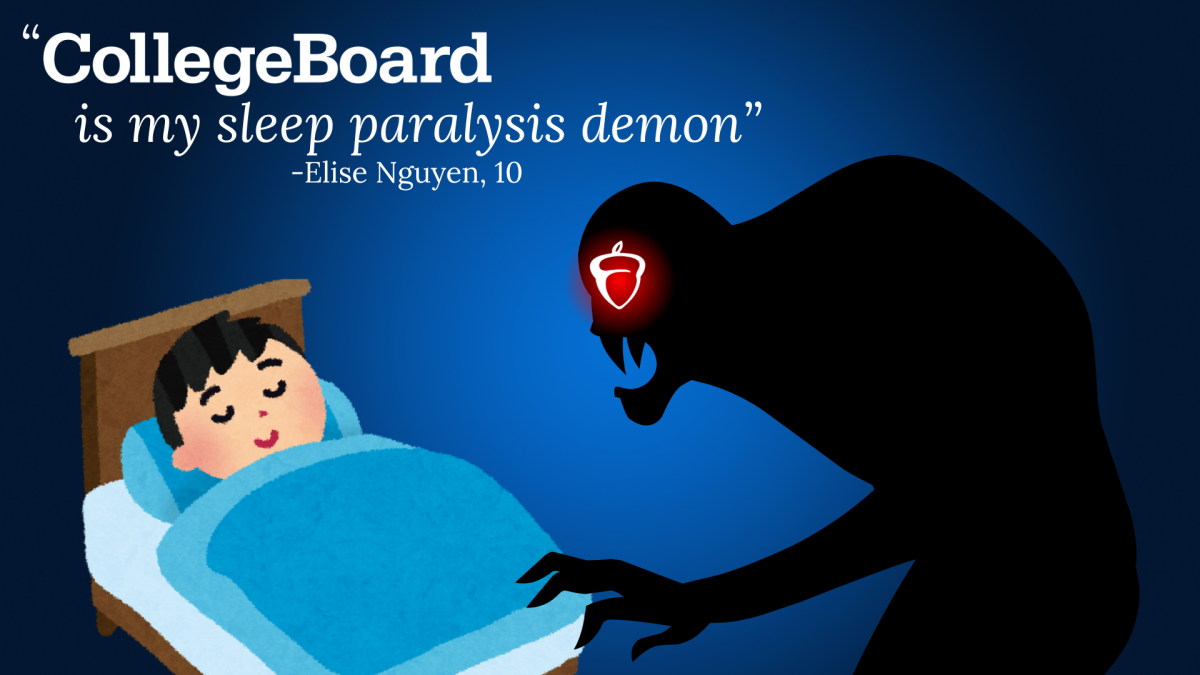Justin Cothran doesn’t do it for the money.
For him, becoming a College Board grader achieved his “ultimate professional development.”
“You get to go behind the scenes,” AP World History teacher Cothran said. “It takes your teaching to a whole new level.”
Through the rigorous training needed to accurately grade exams, Cothran has learned to “reverse engineer” the tests, allowing him to teach students exactly what they need to know to pass the AP World History exam.
“I’ve taught AP now for slightly more than 18 years,” Cothran said. “The skill sets that I have now compared to when I started, are just astronomically higher. So that’s why I do it. I can verbally [and] instructionally show students what is necessary for success.”

For AP Italian Language and Culture and AP Spanish Literature teacher Maria Gloria Borsa, grading for College Board has also altered her perspective.
“[College Board Grading] has completely changed my style of teaching,” Borsa said. “ I was expecting my kids to know a lot of grammar and a lot of vocabulary. When I went to the AP reading, [I realized] that the test is very communicative, so [my students] need to know advanced structures.”
AP World History and World Geography Teacher Jennifer Kuhleman also reflects on her first experience reading for College Board in 2010.
“I didn’t know what to expect,” Kuhlemen said, “But it was a gathering of some of the most knowledgeable individuals in the field.”
In 2023, 92.2% of Bellaire High School students scored a three or higher on the AP World History Exam. On average, the Bellaire AP scores sit two points higher than the Texas average. Among these above average AP scores are courses such as AP Italian and AP Spanish Literature.
These courses are three of 39 Advanced Placement college-level courses from College Board, each offering college credit through exams graded by AP-certified readers in over 6000 institutions across the U.S. and 85 other countries.
Traditionally, readers have graded paper-based tests during the summer in Kansas City, with the grading process normally taking two weeks and readers’ hours fluctuating between 8 a.m. to 5 p.m.

Now, sixteen AP tests are transitioning from paper to fully digital formats this year, including AP Literature, AP World History, AP Biology and AP Chemistry. Twelve other AP tests, including AP Italian Language and Culture and AP Spanish Literature, will adopt a hybrid format, with sections of the exam online and sections on paper.
Borsa said that hybrid testing will be difficult with languages as “the way people express themselves is completely different on paper or if you do it on a laptop.”
Accompanying this change, Borsa plans to adjust her educational approach.
“If my students have to write an essay on a laptop the day of the test, I want them to practice how to write it [before],” Borsa said. “We have to adapt to the new platform before the exam.”
Kuhleman is still unsure about electronic exam administration.
“I’m torn, to be perfectly honest,” Kuhleman said. “It’s much easier to read the typed responses than it is the handwritten responses, but I think looking at what is best for our students, I still feel that pen-to-paper is the best.”
But the transition to online testing isn’t the only change that College Board recently introduced.
Starting in 2020, College Board began recalibrating nine of its most popular APs, raising some concerns about the accuracy of the exams as a standard of college-level courses.
“Up to 10 years ago, the [AP World History exam] passing standard was about 51 to 52%,” Cothran said. “Now it’s hovering between 65 to 67%.”
Even with the change in grading by College Board, AP teachers still hold students to the same expectations of previous rubrics.
“We’re gonna continue to hold the bar,” Kuhleman asserted. “If we lower the bar, we’re not preparing our students to continue to succeed.”
The recalibration has sparked some critique among graders.
“I do believe [the recalibration] has made it easier for some students to achieve a score,” Cothran said. “But it is still benchmarked, tied to what colleges expect from a student.”
Borsa remains confident that the scoring will remain accurate.
“[Scoring] is not going to change, because AP tests have value only if they are equitable,” Borsa said.
With the changes affecting the future, Cothran is uncertain about the trajectory of College Board. But he believes “wholeheartedly in the AP and IB programs.”
“The skills taught in AP and IB are vital to the success of any person,” Cothran said. “I’m passionate about AP, and I’m glad to be a writer.”




















Claire B • Oct 3, 2024 at 9:24 pm
SUPER interesting story, y’all! Definitely something that needed to be written about, and you guys did such a great job covering it! Especially love your lead 🙂